Discover how Microsoft Power Platform and Microsoft 365 work cohesively to empower businesses, by assisting them in creating customised apps, automated workflows, analyse data, and improve collaboration without extensive coding.
In today’s ever changing business landscape, swiftness and flexibility are pivotal in maintaining a competitive standing. Businesses need solutions that can be adapted to their distinctive processes and requirements without the implication of extensive coding and development. Considering these aspects, Microsoft Power Platform and Microsoft 365 work in harmony whereby they can empower businesses to create customised solutions that drive efficiency, productivity and innovation.
This article further explores the expertise of IT support London providers that have been working with Microsoft business solutions for many years. Furthermore, we can unpack the customisability of the Microsoft 365 platform, and how it works together with Power Platform to assist businesses with a tailored business solution.
The Power of Microsoft Power Platform
Microsoft Power Platform is a suite that allows for low-code and no-code tools that facilitates users to build applications, automate workflows, analyse data, and create virtual agents, without the need for in-depth programming knowledge. This platform comprises of four main elements: Power Apps, Power Automate, Power BI and Power Virtual Agents.
- Power Apps – Businesses can design custom apps that makes provision for specific processes or functions. There is a drag-and-drop interface which makes it easier for both technical and non-technical users to create apps that work cohesively with data sources like SharePoint, and other Microsoft 365 services.
- Power Automate – Previously known as Microsoft Flow, Power Automate allows users to automate repetitive tasks and workflows across various applications and services. This not only reduces the risk of errors, and allows for time-efficiency, but it also assists businesses to ensure a consistency within their processes.
- Power BI – Considering that data-driven decision-making is a core reason for businesses to succeed. Powe BI allows businesses to create interactive, visually appealing reports and dashboards that offers insights from data found across multiple sources.
- Power Virtual Agents – In order for businesses to maintain strong relationships with their end users, they must focus on delivering a good customer service and engagement. Therefore, Power Virtual Agents empowers businesses to develop AI-powered chatbots that can handle basic enquiries and tasks, improving the customer support and overall user experience.
Microsoft 365 – A Comprehensive Ecosystem
On the other hand, Microsoft 365 is a suite that accommodates cloud-based tools which includes familiar applications like Word, Excel, PowerPoint, and Outlook, alongside collaborative tools like SharePoint and Teams. This platform was created to allow for seamless collaboration, communication, and productivity within businesses. According to managed IT services London providers, Microsoft 365 was created to provide an almost complete productivity ecosystem for various scales of businesses – additionally still supporting a diverse range of third-party integrations.
Collaboration between Customised Solutions
The unification of Microsoft Power Platform with Microsoft 365 is very influential. Businesses can strengthen their data stored in Microsoft 365 applications and services to create custom solutions through the various Power Platform components. Below are a few of the customised solutions:
- Power Apps: This can be used to develop apps that rationalise approval processes within SharePoint.
- Power Automate: This can automate document approvals in Teams.
- Power BI: This can visualise sales data from Excel spreadsheets.
- Power Virtual Agents: This can offer self-service options to basic HR queries.
Another valuable feature is that that users can access these tailored solutions through the same Microsoft 365 interface, eliminating the need to switch between the various platforms and interfaces.
Benefits of the Collaboration
- Quick Development – Due to the low-code aspect of the Power Platform, it allows for the development process to be expedited enabling businesses to respond quickly to evolving needs.
- Cost-Efficiency – Power platform reduced the need for comprehensive coding and development, rather than traditional software development which can be very resource-heavy and costly.
- Empowered users – Users that are not necessarily tech-savvy, can contribute to the development of solutions, as the platform’s interface requires minimal training.
- Flexibility – If a business requires a solution to meet its large or small requirements, the Power Platform can be flexible enough to accommodate this change.
- Innovation – The platform can rapidly create prototypes, and repetition encourages experimentation and innovation in adopting business challenges.
Considering all the above features, the integration between Microsoft Power Platform and Microsoft 365 exhibits a convincing objective for businesses aiming to improve their operations and evolve to a more dynamic market. Many businesses that have worked alongside Microsoft 365 Consultants can reiterate their support of Power Platform being a powerful way of upgrading the Microsoft 365 experience. As the business landscape continues to enhance, this collaboration allows companies with the swiftness and flexibility to thrive in an evolving environment.

